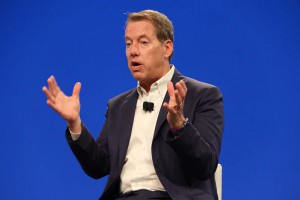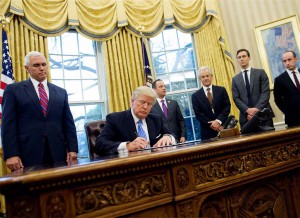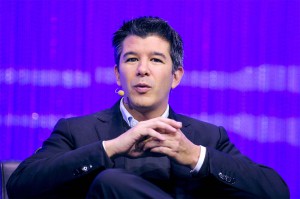With protests continuing around the country in response to Pres. Donald Trump’s Executive Order on immigration and travel, the U.S. business community is being drawn into the fray, Ford Motor Co. among the latest companies to take a stand.
The second-largest domestic automaker issued a statement Monday morning cosigned by Chairman Bill Ford and CEO Mark Fields declaring, “Respect for all people is a core value of Ford Motor Company, and we are proud of the rich diversity of our company here at home and around the world. That is why we do not support this policy or any other that goes against our values as a company.”
Demonstrations were underway at more than 30 U.S. airports over the weekend to protest restrictions placed largely on Mideasterners of the Islamic faith. But while it is typically rare for the business community to be brought into such political turmoil, the latest fracas touched off by the inauguration of Trump has left fewer and fewer on the sidelines.
(Automakers look for options, weigh costs under Trump. For the story, Click Here.)
The auto industry is in a particularly vulnerable position. As a global business, a company like Ford typically will employ citizens or immigrants from dozens of different companies. At the number two U.S. automaker, that includes several executives at some of its more senior levels. And, with frequent travel a part of the job requirement, changes in border and immigration policies could have a direct impact.
“We are not aware, to date, of any Ford employees directly affected by this policy,” said the statement from Chairman Bill Ford and CEO Fields. “We will continue working to ensure the well-being of our employees by promoting the values of respect and inclusion in the workplace.”
Several sources at the other two domestic automakers indicated that senior management was also concerned about the impact of Trump’s Executive Order and that statements might be forthcoming from General Motors and Fiat Chrysler Automobile.
In the first hours and days after the immigration order was signed, a number of high-tech firms, including Apple, Microsoft and Netflix issued their own condemnations. Google set aside a $4 million legal fund to help those who might be impacted by the White House order.
(Even ride-sharing rivals get caught up in political fracas. Click Here for the story.)
Meanwhile, the second-largest American ride-sharing service, Lyft, announced it would donate $1 million to the American Civil Liberties Union. The ACLU took the Trump proclamation to court over the weekend, a federal judge moving to bar certain provisions.
Lyft’s move helped reveal the increasing polarization of a country seemingly in turmoil since well before last November’s election. The company issued its own condemnation of the immigration ban over the weekend and that was followed by wide praise from Trump critics – and harsh criticism from the president’s proponents.
Perhaps even harder hit was Lyft’s rival, Uber. The number one ride-sharing service was accused by some on social media of trying to take advantage of the immigration protests by cutting rates to New York’s JFK airport after local taxi drivers announced a brief boycott.
The irony is that Uber had actually criticized the president’s Executive Order on immigration shortly after it was signed, though CEO Travis Kalanick’s statement appeared soft to many Trump foes.
The ride-sharing service was more blunt in a Sunday statement that it planned to, “urge the government to reinstate the right of U.S. residents to travel — whatever their country of origin — immediately,” though its language appeared to focus specifically on green card holders.
Kalanick, who is on the president’s business advisory panel – and who met with Trump on Friday — also announced Uber would compensate any of its drivers who were affected by the travel ban and barred from entering the U.S., creating a $3 million fund to help drivers.
But that didn’t stop many users from reportedly deleting their Uber smartphone apps.
In the face of the country’s current polarization, business leaders are facing the challenge of reading and responding to both their own corporate and personal beliefs, as well as trying to divine how to react to a polarized public.
(Strange bedfellows: Tesla’s CEO Musk unexpectedly engages with Trump despite strong differences. Click Here for the story.)




https://youtu.be/6b0bIEMsHwM